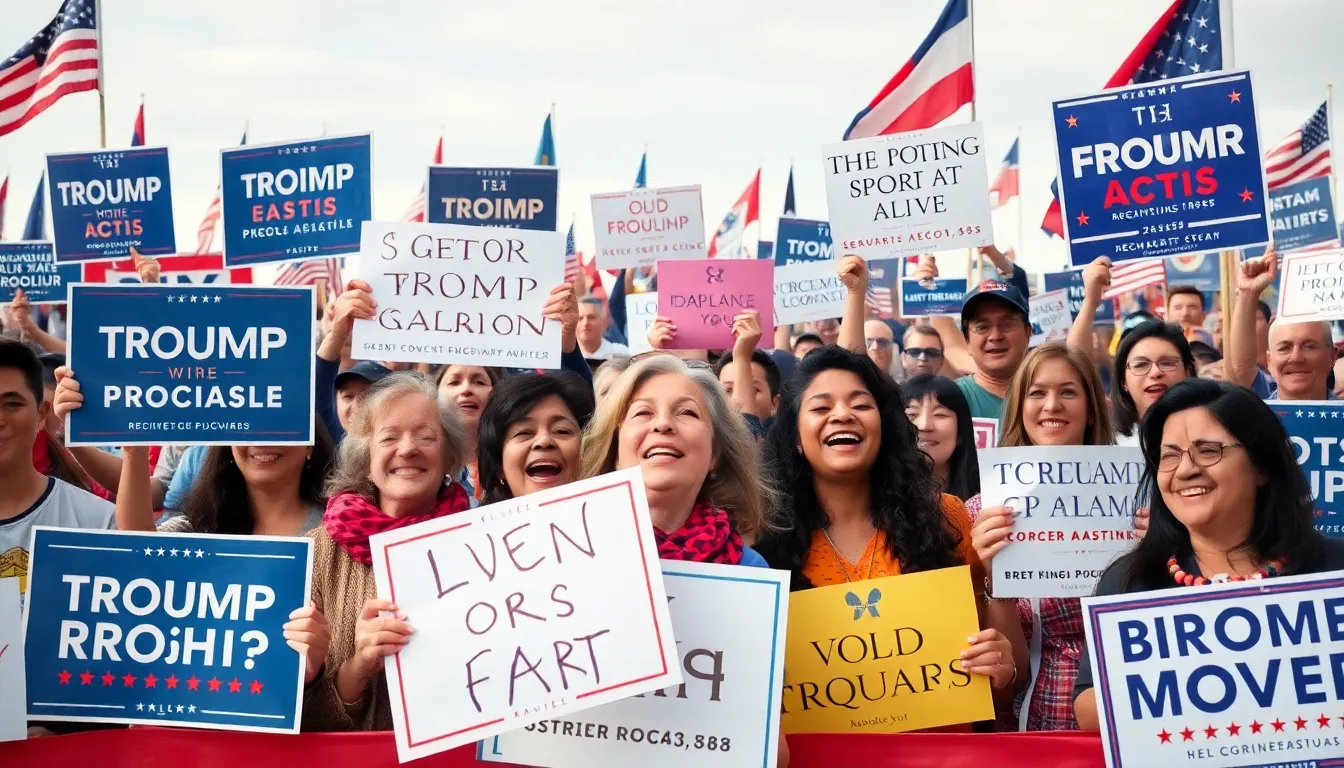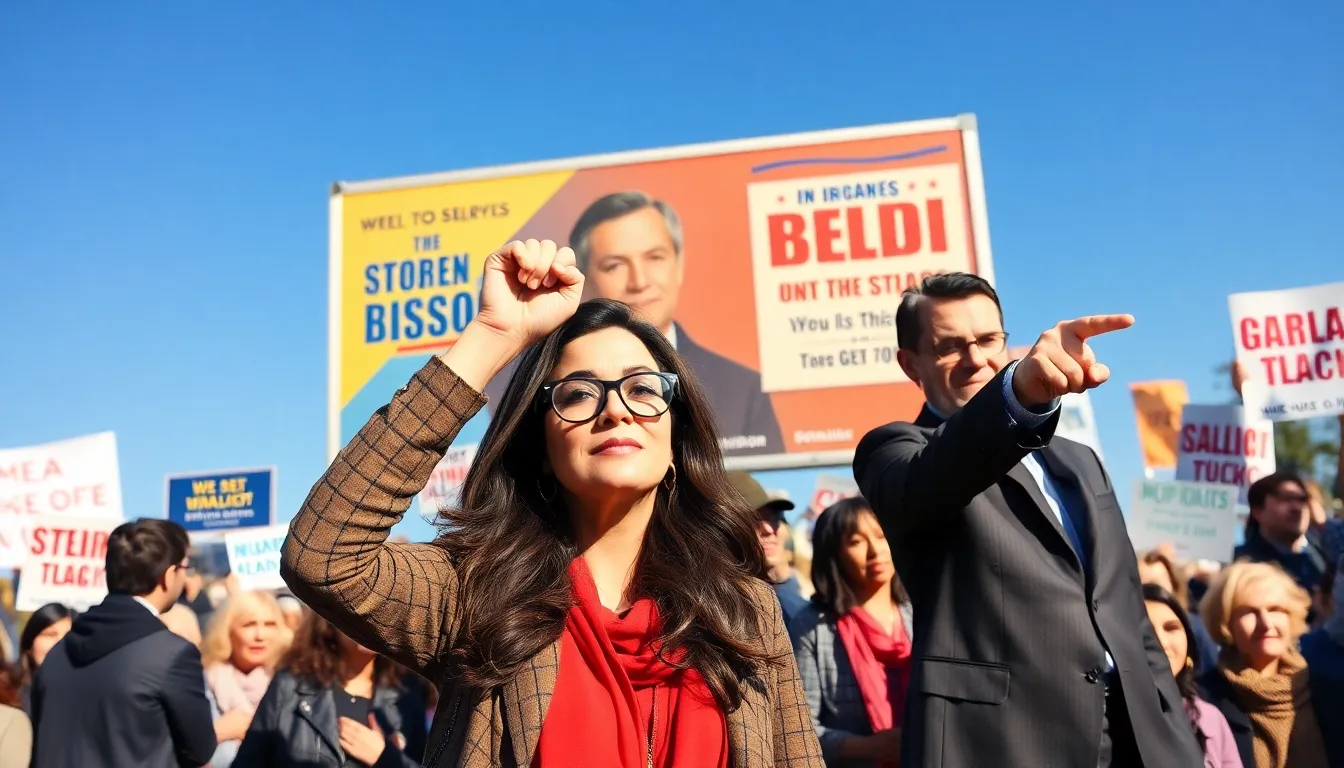In the high-stakes game of politics, super PACs are the secret weapons that can make or break a candidate’s campaign. Picture them as the fairy godmothers of the electoral world, waving their magic wands to transform ordinary candidates into formidable contenders. With deep pockets and an arsenal of advertisements, these organizations have the power to shape public opinion faster than you can say “vote for me!”
But how exactly do super PACs pull the strings behind the scenes? They operate in a realm where money talks and voters listen, often drowning out the voices of everyday citizens. The influence of super PACs raises eyebrows, igniting debates about fairness and transparency in elections. Buckle up as we dive into the fascinating and sometimes bewildering world of super PACs and their undeniable impact on the democratic process.
Table of Contents
ToggleOverview of Super PACs
Super PACs play a critical role in shaping election outcomes. Through significant funding and advertising efforts, they influence public opinion and candidate visibility.
Definition of Super PACs
Super PACs, or independent expenditure-only committees, can raise and spend unlimited amounts of money to advocate for or against political candidates. These organizations operate separately from candidates’ official campaigns, allowing them to engage in political spending and advertising without direct coordination. Established after the 2010 Citizens United v. FEC Supreme Court decision, they serve as vehicles for individual and corporate donations on a massive scale.
Key Characteristics of Super PACs
Super PACs possess unique features that distinguish them from traditional political action committees. They emphasize independence, meaning they cannot coordinate directly with candidates. Transparency is also vital; they must disclose their donors, although loopholes often obscure the true sources of funding. Additionally, super PACs can raise funds from individuals, corporations, and unions, providing a vast financial pool for campaign activities. Their primary objective focuses on influencing elections through advertisements and messaging that can significantly sway voter perceptions.
The Role of Super PACs in Elections

Super PACs significantly impact elections by providing candidates with substantial financial backing. They serve as independent expenditure-only committees that raise and spend unlimited amounts of money to influence political outcomes.
Campaign Finance and Contributions
Super PACs attract donations from individuals, corporations, and unions. They can collect unlimited funds, allowing them to substantially influence candidates and campaigns. In the 2020 election cycle, super PACs raised over $1 billion, demonstrating their financial clout. Contributions to these organizations often come with a lack of transparency, creating concerns around donor influence. While regulations require super PACs to disclose their donors, loopholes enable some to remain anonymous. Voters may find it difficult to assess how these financial contributions impact candidate positions, thus complicating the electoral process.
Advertising and Messaging Strategies
Advertising campaigns run by super PACs often dominate media landscapes during elections. They utilize strategic messaging to shape public opinion and increase candidate visibility. A combination of television ads, digital marketing, and grassroots efforts enhances their outreach. Super PACs focus on specific demographics, tailoring messages to resonate with target voters. In 2020, they spent approximately $600 million on television ads alone, giving them a significant advantage in framing the narrative. This advertising power allows super PACs to steer discussions and influence voter perceptions effectively, amplifying their role in the electoral landscape.
The Impact of Super PACs on Voter Perception
Super PACs significantly influence how voters perceive candidates through their funding strategies and messaging techniques.
Influence on Candidate Image
Candidate image often shapes voter opinions. Super PACs employ sophisticated advertising tactics that craft appealing narratives around their favored candidates. By spending large sums on targeted ads, they enhance visibility and frame candidates in favorable lights. For instance, during the 2020 election cycle, major super PACs utilized emotional storytelling to resonate with voters, reinforcing candidates’ strengths while downplaying weaknesses. Such strategies not only create stronger public identities but also distract voters from critical issues. These efforts establish lasting perceptions that can sway undecided voters and solidify support among party bases.
Mobilization of Voter Turnout
Mobilizing voter turnout hinges on effective messaging from super PACs. Clear calls to action encourage voter participation, as these organizations leverage various platforms to reach target demographics. Super PACs aim digital ads at specific audiences, driving registration drives and sharing information about voting logistics. Approximately 60% of voters reported being influenced by advertising during elections, illustrating the persuasive power of these campaigns. Through grassroots initiatives like door-to-door canvassing, they also enhance community engagement. By blending traditional outreach with modern technology, super PACs can significantly impact electoral participation rates, emphasizing their role in shaping election outcomes.
Legal and Ethical Considerations
Super PACs operate within a complex framework of legal and ethical boundaries that shape their influence on elections. Understanding these regulations is vital for grasping the environment in which super PACs function.
Regulation of Super PACs
The Federal Election Commission oversees super PAC regulations. Transparency requirements dictate that these organizations disclose their donors and spending, yet loopholes exist that threaten accountability. Super PACs can raise unlimited funds from individuals, corporations, and unions. They can’t coordinate directly with candidates, maintaining a façade of independence that complicates regulatory frameworks. Notably, the Supreme Court’s ruling in Citizens United v. FEC in 2010 significantly expanded the ability of super PACs to raise and spend money. This landmark decision reshaped political financing, emphasizing the ongoing debate surrounding the influence of money in politics.
Controversies Surrounding Super PACs
Critics frequently voice concerns about super PACs undermining democratic processes. The substantial financial resources these organizations wield often drown out the voices of regular voters. Issues of donor influence arise, as hidden contributors may sway candidate positions on key issues. In certain cases, the connection between dark money sources and super PACs fuels skepticism about the integrity of elections. Voter apathy can also heighten as many perceive the electoral process as skewed by financial clout rather than constituent interests. Not surprisingly, public perception of super PACs remains polarized, reflecting broader societal debates about the role of money in politics and its implications for democracy.
The influence of super PACs on elections is undeniable. With their ability to raise and spend unlimited funds, they play a pivotal role in shaping the political landscape. Their strategic advertising and messaging significantly impact voter perceptions and candidate visibility.
While they can elevate candidates, concerns about transparency and fairness persist. The complex legal framework governing super PACs raises questions about accountability and the potential for undue influence on democratic processes. As public sentiment continues to evolve, the debate surrounding super PACs will remain central to discussions about the integrity of elections and the role of money in politics.



